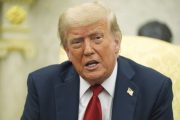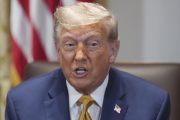When asked by reporters if U.S. troops would be sent to Yemen, Secretary of Defense Leon Panetta responded, “There’s no consideration of that. Our operations now are directed with the Yemenese going after al-Qaida.”
“No consideration” is exactly the type of vague and undefined phrase the American people have come to expect from representatives of the national government, particularly when it comes to questions about the interminable “War on Terror.”
In what would be a surprise to no one, just days before the Secretary of Defense made this pronouncement, the Obama administration announced that it would be sending troops (“military advisors” is the way the DoD classifies them) back to Yemen to help the Yemeni government track and kill militants associated with al-Qaeda in the Arab Peninsula (AQAP).
As readers may recall, U.S. armed forces were previously deployed to Yemen, but had been recalled after President Obama suspended the mission pending a resolution to the revolution in the host nation.
In February, after 30 years ruling the Middle Eastern country, Ali Abdullah Saleh was sent packing and a new government, one more friendly to drones and “boots on the ground” than the previous administration, took over. Upon hearing the good news, President Obama rescinded his previous order and now U.S. soldiers are back in Yemen.
In language eerily (and purposefully) similar to that used to describe our ongoing role in Afghanistan, the Chairman of the Joint Chiefs of Staff, General Martin Dempsey, told reporters that the goal of the American military mission in Yemen is to “build their capacity, not use our own.”
Naturally, Yemeni government officials echoed this assessment of the renewed joint venture.
Yemeni Foreign Minister Abu Bakr al-Kirby said that the deployment of U.S. troops into his country was a “routine military-to-military cooperation.”
That, say constitutionalists, is precisely the problem. It indeed has become global standard operating procedure to send in the U.S. military whenever some gang of militants needs to be tracked through the mountains in some distant land.
Just how will American “assets” help the Yemeni intelligence service and armed forces capture and eliminate the AQAP presence in that country?
A defense analyst at the Center for Strategic and International Studies in Washington, Anthony Cordesman, reports that, “Some of these you use to cooperate very closely with the Yemenis, and some you use to figure out who’s on first.”
The “small numbers of trainers” that the Pentagon has reintroduced into Yemen consist mainly of special operations units that are typically sent in to assist in the carrying out of covert operations.
What is just as likely is that these Special Forces units will assist the ongoing drone war being waged in Yemen. According to a report on CNN, there have been at least 15 drone strikes in Yemen this year.
Last year two Predator drones shot Hellfire missiles and killed three American citizens in Yemen: Anwar al-Awlaki, his 16-year-old son, Abdulraham al-Awlaki, and Samir Khan. Notably, none of these three men was ever charged with or tried for any crime. The Obama administration seems to favor the ease of remote-control killing of its enemies over the tedium of a trial and the use of drones over due process.
While such decisions demonstrate a lack of commitment by the President to the peace and stability of our constitutional republic, an executive order signed by him yesterday aims to protect the “peace, stability, [and] security of Yemen.”
According to a statement issued in conjunction with the signing of the edict:
This Executive Order will allow the United States to take action against those who seek to undermine Yemen’s transition and the Yemeni peoples’ clear desire for change. The President took this step because he believes that the legitimate aspirations of the Yemeni people, along with the urgent humanitarian and security challenges, cannot be addressed if political progress stalls.
This order unconstitutionally used the power of the U.S. government to block the “property and interests in property that are in the United States, that hereafter come within the United States, or that are or hereafter come within the possession or control of any United States person, including any foreign branch” of any person believed by the Obama administration to be threatening the security and stability of Yemen.
When paired with the indefinite detention provisions of the National Defense Authorization Act (NDAA), the President has been designated the arbiter of safety here and abroad. Should anyone, U.S. citizen or foreigner, be found to have aroused the suspicion of the White House, there is now “legal authority” to have those unfortunate individuals lose their homes, their money, and their freedom — all without being charged, tried, or convicted.
Yemeni stability is the stated goal; however, if Afghanistan and Iraq are any example, that day will never come, and thus thousands of American servicemen and women will be sacrificed on the already-blood-soaked altar of global security.
Even Secretary Panetta admits that it’s anyone’s guess how wide the scope of this mission will eventually get.
“None of us know where this is going,” he says.
“No one in any way underestimates the fact that all of them represent a concern for the United States in terms of our national security,” he added.
There on prominent display is the hubris of the federal government presuming to speak for all Americans.
The truth is that there are millions of Americans who recognize that there is no constitutional authority for the deployment of troops to Yemen or the signing of an executive fiat freezing the assets of those who are suspected of threatening the stability of a foreign regime (particularly one so rife with scandal and plagued by accusations of a lack of clean hands).
Furthermore, these concerned citizens realize that “our national security” is threatened less by Yemeni militants than by the manifold due process-destroying acts passed into law by our very own Congress and signed by an increasingly despotic President.
Photo: Defense Secretary Leon Panetta was greeted by Col. John Shafer at Foward Operating Base Shukvani, Afghanistan, on March 14, 2012: AP Images




